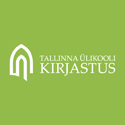Which Past for the Soldier? Military History, Historical Education, and the Ethics of Democracy in Germany Today
Abstract
The construction of tradition in the military depends on the meaning given to certain aspects of the past in the light of the pres- ent. West Germany’s history of tradition-building since 1955 is a case in point. After the end of Nazism, the new democratic armed forces, the Bundeswehr, was supposed to distance itself from the Wehrmacht by emphasizing the “civil” role of soldiers. Communicating historical knowledge became part of their democratic education rather than a guideline for military performance. Institutions such as the Center for Military History and the Museum of Military History, travel exhibitions, as well as popular scientific journals have contributed to an understand- ing of what is worthy of tradition – in particular the Prussian reforms, the plot of 20 July 1944, and the history of the Bundeswehr itself. Such references to the past – so the argument goes – help soldiers in combat to better grasp the ethical framework of military operations, provide orientation, and support their identity. Whether and how traditions should be adjusted according to changing military conditions remains controversial.
Full Text:
PDFRefbacks
- There are currently no refbacks.
Kirjastaja / Published by:

ISSN 2228-0669 (trükis / print)
